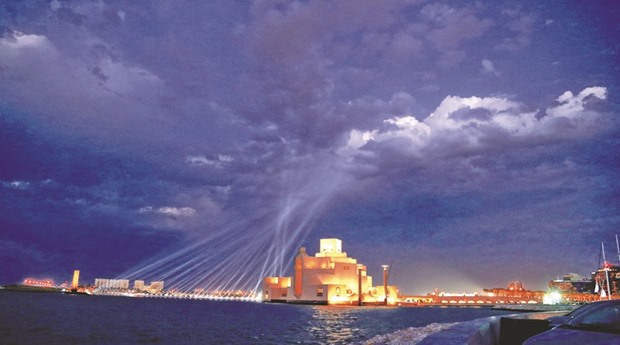Qatar’s $256bn sovereign wealth fund as well as the country’s continuing ability to tap international debt markets provide the economy with “significant bulwarks against a sustained dropoff in demand” for oil and gas, BMI has said in a report.
Lower hydrocarbons prices do not present a “significant threat” to Qatar’s “fiscal sustainability,” the Fitch Group company has said in a report.
Nevertheless, it said the “government will seek to tighten control over public spending and rationalise Qatar’s vast pipeline of infrastructure projects - a trend that will be positive for the economy over the longer run.”
The performance of the Qatari economy will be more mixed than in recent years, amidst the intertwined pressures of the global energy slump and tightening domestic liquidity.
“We forecast real economic growth of 5% this year and 4.8% in 2017, driven mainly by strong growth in the primary and secondary sectors.
“Given the economy’s heavy reliance on the hydrocarbon sector, a pronounced global economic downturn - if it were to translate into a sustained dropoff in demand for oil and gas - could impact negatively on our forecasts for Qatar’s external account position, budget and growth outlook,” BMI said.
It expects the Qatar Central Bank to maintain its policy lending rate on hold at 4.50% over the first half of the year, in a continued divergence from the US Federal Reserve’s rate hike in December 2015. Deepening liquidity problems mean that more active steps to ease the strain on the domestic banking system are likely, including a cut in the repo rate and a reduction in the required reserve ratio.
Qatar’s short-term political risk profile remains among the “most stable” in the region. Qataris benefit from massive hydrocarbon wealth, which is spread generously across the country’s native population and enjoy the highest per capita GDP in the world, it said.
Among the “key risks” highlighted by BMI are the country’s economy’s heavy reliance on the hydrocarbon sector and a pronounced global economic downturn.
“If these were to translate into a sustained drop-off in demand for oil and gas - could impact negatively on our forecasts for Qatar’s external account position, budget and growth outlook. That said, we highlight that the country’s $256bn sovereign wealth fund - as well as its continuing ability to tap international debt markets - provides the economy with significant bulwarks against these risks.”
Also, Qatar’s construction sector “remained exposed” to the potential for delays and cost overruns, a factor that was increasing and unlikely to improve over the medium term,” BMI said.

Lower hydrocarbons prices do not present a u201csignificant threatu201d to Qatar’s u201cfiscal sustainability,u201d BMI, a Fitch Group company, has said in a report.
